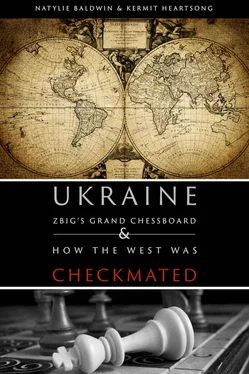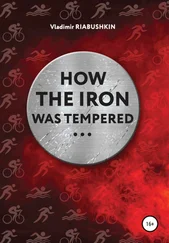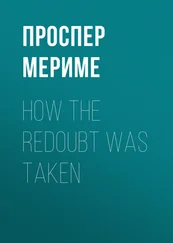Kermit Heartsong - Ukraine - ZBIG's Grand Chess Board & How The West Was Checkmated
Здесь есть возможность читать онлайн «Kermit Heartsong - Ukraine - ZBIG's Grand Chess Board & How The West Was Checkmated» весь текст электронной книги совершенно бесплатно (целиком полную версию без сокращений). В некоторых случаях можно слушать аудио, скачать через торрент в формате fb2 и присутствует краткое содержание. Год выпуска: 2015, Жанр: Политика, на английском языке. Описание произведения, (предисловие) а так же отзывы посетителей доступны на портале библиотеки ЛибКат.
- Название:Ukraine: ZBIG's Grand Chess Board & How The West Was Checkmated
- Автор:
- Жанр:
- Год:2015
- ISBN:нет данных
- Рейтинг книги:4 / 5. Голосов: 1
-
Избранное:Добавить в избранное
- Отзывы:
-
Ваша оценка:
- 80
- 1
- 2
- 3
- 4
- 5
Ukraine: ZBIG's Grand Chess Board & How The West Was Checkmated: краткое содержание, описание и аннотация
Предлагаем к чтению аннотацию, описание, краткое содержание или предисловие (зависит от того, что написал сам автор книги «Ukraine: ZBIG's Grand Chess Board & How The West Was Checkmated»). Если вы не нашли необходимую информацию о книге — напишите в комментариях, мы постараемся отыскать её.
Ukraine: ZBIG's Grand Chess Board & How The West Was Checkmated — читать онлайн бесплатно полную книгу (весь текст) целиком
Ниже представлен текст книги, разбитый по страницам. Система сохранения места последней прочитанной страницы, позволяет с удобством читать онлайн бесплатно книгу «Ukraine: ZBIG's Grand Chess Board & How The West Was Checkmated», без необходимости каждый раз заново искать на чём Вы остановились. Поставьте закладку, и сможете в любой момент перейти на страницу, на которой закончили чтение.
Интервал:
Закладка:
When we looked through the book, we found very clear episodes where CIA black propaganda — clandestine information that was designed under a covert action plan to be planted in European newspapers — were picked up and put in this book. A lot of it was made up. It was made up out of whole cloth. We told him that, point blank. And we even had the operations people to tell Bill Casey this. I thought maybe this might have an impact, but we were all dismissed. Casey had made up his mind. Lies became reality. (Curtis 2004)
Another example of the Neoconservative pattern of not letting facts get in their way. Ledeen’s depth of thinking, or lack thereof, was revealed by the following response he gave to the episode:
The CIA denied it. They tried to convince people we were really crazy. I mean, they never believed that the Soviet Union was a driving force in the international terror network. They always wanted to believe that terrorist organizations were just what they said they were: local groups trying to avenge terrible evils done to them, or trying to rectify terrible social conditions, and things like that. And the CIA really did buy into that rhetoric. I don’t know what their motive was. I don’t know what peoples’ motives are, hardly ever. And I don’t much worry about motives. (Curtis 2004)
Supposedly, Casey was able to find an academic to produce a document showing that the “terror network” did exist. With this in hand, Casey was finally able to put enough pressure on Reagan to convince him to sign a confidential document to allow funding for covert wars to counter this threat from the Soviet Union (Curtis 2004).
When the Soviet Union’s own internal problems came to a head, and Reagan followed his better instincts to engage the new leadership in Moscow to negotiate a peaceful and mutually beneficial path out of the Cold War, the Neocons claimed a victory for their aggressive policies based on more dangerous mythology (Matlock 2010).
When the people controlling foreign policy in America believe that one cannot have a substantive or meaningful identity without something or someone to oppose — in other words, when an enemy disappears, as was the case after the end of the Cold War — an existential crisis ensues. As many analysts observed during the height of the Global War on Terror, if one just substituted the word “terrorist” for “communist” in all the lines of the script, the movie remained pretty much the same.
The profit motive of the MIC, of course, also plays into this interest of keeping conflicts going throughout the world in order to guarantee markets and profits. What were all those powerful arms manufacturers going to do when the Cold War ended? As we will see in Chapter 3, the peace dividend was not going to be allowed to happen.
Military Strategy
Though Leo Strauss gets much of the credit and attention for influencing the group that would become known as the Neoconservatives, a lesser-known inspiration was a RAND Corporation Researcher and Pentagon advisor named Albert Wohlstetter. Wohlstetter found the contemporary nuclear policy of Mutually Assured Destruction (MAD) to be immoral and ineffective due to the fact that it would be so destructive to the civilian population if acted on and therefore no American leader would choose “reciprocal suicide” (apparently, he believed it was plausible that a Soviet leader might). According to authors Alain Frachon and Daniel Vernet in their article, “The Strategist and the Philosopher”:
To the contrary, Wohlstetter proposed “staggered deterrence” i.e. accepting limited wars that would eventually use tactical nuclear weapons with high-precision “smart” bombs capable of striking at the enemy’s military apparatus.
He criticized the joint nuclear weapons control policy with Moscow. According to him, it amounted to bridling US technological creativity in order to maintain an artificial balance with the USSR. (Frachon and Vernet 2003)
It was purportedly Wohlstetter’s influence that led Reagan to pursue his “Star Wars” shield, which was the precursor to the missile defense shield pursued during the Bush II administration and was the reason behind Bush’s unilateral withdrawal from the ABM Treaty (Frachon and Vernet 2003).
The Wolfowitz Doctrine
Paul Wolfowtiz, a former student of both Strauss and Wohlstetter at the University of Chicago, wrote a draft version of a document called the Defense Planning Guidance for 1994–1999 in his capacity as Under Secretary of Defense in the Bush I administration. The draft was leaked to the New York Times on March 7, 1992, which led to public outcry about its imperialist overtones, moving official policy from one of “containment” to one of unilateralism and preventing the emergence of any potential rival to the US’s hegemony as one of its tenets. The document was subsequently revised by Secretary of Defense Dick Cheney and Chairman of the Joint Chiefs of Staff Colin Powell and was officially released the following month. The original draft became known as the Wolfowitz Doctrine and its precepts re-emerged during the Bush II administration for which Wolfowitz served as Deputy Secretary of Defense (Wikipedia, “Wolfowitz Doctrine”; Wikipedia, “Paul Wolfowitz”). Some of the controversial language of the doctrine that is most germane to the subject of this book includes the following under Section 1.B:
Our first objective is to prevent the reemergence of a new rival, either on the territory of the former Soviet Union or elsewhere, that poses a threat on the order of that posed formerly by the Soviet Union. This is a dominant consideration underlying the new regional defense strategy and requires that we endeavor to prevent any hostile power from dominating a region whose resources would, under consolidated control, be sufficient to generate global power. These regions include Western Europe, East Asia, the territory of the former Soviet Union, and Southeast Asia…
Finally, we must maintain mechanisms for deterring potential competitors from even aspiring to a larger regional or global role. (Wolfowitz 1992)
Other disturbing sections of the doctrine that pertain to pushing ideological hegemony and the implicit potential for interfering in the internal relations of other nations include part of Section 1.A:
We will seek to promote those positive trends which serve to support and reinforce our national interests, principally, promotion, establishment and expansion of democracy and free market institutions worldwide. (Wolfowitz 1992)
And Section 7.B:
To deterring and, when necessary, defending against threats to our security, and interests; and to exercising the leadership needed, including the decisive use of military forces when necessary, to maintain a world environment where societies with shared values can flourish. (Wolfowitz 1992)
Basically, this doctrine is giving the United States government permission to decide that potentially any other nation on the planet may be subject to its definition of democracy, free market institutions and an environment where “shared values can flourish.” If the US government determines that a nation does not meet these criteria, its rights to sovereignty and to self-determination as enshrined in international law can potentially be overruled, with unilateral military force. In other words, those controlling US government policy ultimately get to decide what form of political government and economic arrangement is best for another nation anywhere in the world, not the people living there and not the recognized leaders of the nation in question.
President Obama, with his frequent citing of America's exceptionalism, has never repudiated this doctrine.
A Clean Break
Читать дальшеИнтервал:
Закладка:
Похожие книги на «Ukraine: ZBIG's Grand Chess Board & How The West Was Checkmated»
Представляем Вашему вниманию похожие книги на «Ukraine: ZBIG's Grand Chess Board & How The West Was Checkmated» списком для выбора. Мы отобрали схожую по названию и смыслу литературу в надежде предоставить читателям больше вариантов отыскать новые, интересные, ещё непрочитанные произведения.
Обсуждение, отзывы о книге «Ukraine: ZBIG's Grand Chess Board & How The West Was Checkmated» и просто собственные мнения читателей. Оставьте ваши комментарии, напишите, что Вы думаете о произведении, его смысле или главных героях. Укажите что конкретно понравилось, а что нет, и почему Вы так считаете.











